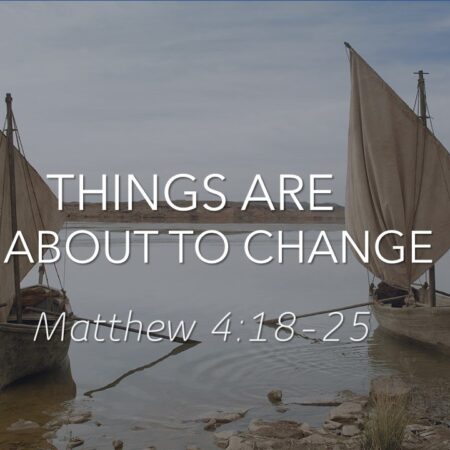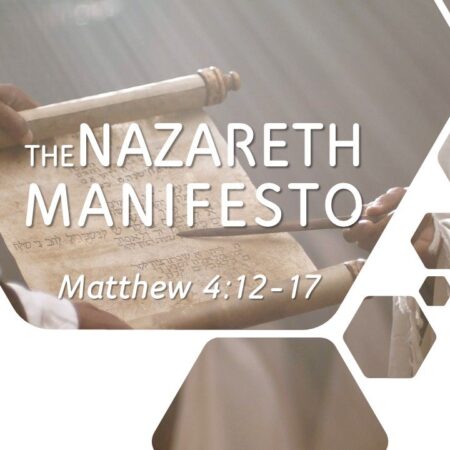Dallas Willard in “The Divine Conspiracy”
Bar-Code Faith
Think of the bar codes now used on goods in most stores. The scanner responds only to the bar code. It makes no difference what is in the bottle or package that bears it, or whether the sticker is on the ‘right’ one or not. The calculator responds through its electronic eye to the bar code and totally disregards everything else. If the ice cream sticker is on the dog food, the dog food is ice cream, so far as the scanner knows or cares.
On a recent radio program a prominent minister spent fifteen minutes enforcing the point that ‘justification’, the forgiveness of sins, involves no change at all in the heart of personality of the one forgiven. It is, he insisted, something entirely external to you, located wholly in God himself.
His intent was to emphasize the familiar Protestant point that salvation is by God’s grace only and is totally independent of what we may do. But what he in fact said was that being a Christian has nothing to do with the kind of person you are. The implications of this teaching are stunning.
The theology of Christian trinkets says there is something about the Christian that works like the bar code. Some rituals, some belief, or some association with a group affects God the way the bar code affects the scanner. Perhaps there has occurred a moment of mental assent to a creed, or an association entered into with a church. God ‘scans’ it, and forgiveness floods forth. An appropriate amount of righteousness is shifted from Christ’s account to our account in the bank of heaven, and all our debts are paid. We are, accordingly, ‘saved’. Our guilt is erased. How could we not be Christians?
For some Christian groups the ‘account’ has to be appropriately serviced to keep the debts paid up, because we really are not perfect. For others – some strong Calvinist groups – every debt past, present and future is paid for at the initial scan. But the essential thing in either case is the forgiveness of sins. And the pay-off for having faith and being ‘scanned’ comes at death and after. Life now being lived has no necessary connection with being a Christian as long as the ‘bar code’ does its job.
R.T. France in his commentary gives us the answer:
“These large “crowds” are said to “follow” Jesus, the same term which in verses 20 and 22 denoted the first disciples’ total change of lifestyle….
A radical commitment to accompany Jesus.
Yet as the narrative progresses, we shall find only a few who are Jesus’ constant and committed companions, while a less easily defined “crowd” comes and goes. This wider group represents a pool of possible “full-time” recruits, but generally their “following” seems to be more sporadic and temporary.
The verb “follow” alone is not therefore a sufficient indication of full-scale discipleship. Mark 3:7-8 is perhaps more exact in describing this interprovincial crowd as simply “coming to” Jesus.”
Michael Heiser in “Supernatural” writes:
“The members of God’s family have a mission: to be God’s agents in restoring his good rule on earth and expanding the membership of his family. We are God’s means to propel the great reversal begun in Acts 2, the birth of the church, the body of Christ, until the time when the Lord returns.
As evil had spread like a contagion through humanity after the failure of the first Eden, so the gospel spreads like an antidote through the same infected host. We are CARRIERS of the truth about the God of gods, his love for all nations, and his unchanging desire to dwell with his family in the earthly home he has wanted since its creation. Eden will live again.
Everything we do and say matters, though we may never know why or how. But our job isn’t to see – it’s to do. Walking by faith isn’t passive – its purposeful.”
"John" Tagged Sermons
Christopher Wright in his book “The Mission of God”, writes:
“The reign of YHWH, when it would finally come, would mean justice for the oppressed and the overthrow of the wicked. It would bring true peace to the nations and the abolition of war, the means of war, and training for war. It would put an end to poverty, want and need, and provide everyone with economic viability (under the metaphor “under his own vine and fig tree”). It would mean satisfying and fulfilling life for human families, safety for children, and fulfillment for the elderly, without danger from enemies, and all of this within a renewed creation free from harm and threat. It would mean the inversion of the moral values that dominate the current world order, for in the kingdom of God the upside down priorities of the beatitudes operate and the Magnificat is not just wishful thinking.”
J.D. Green in his book “Christology in Cultural Perspective”
“As Jesus stood on trial before the highest political-religious authority in all Jewish society, he calmly took to himself the identity of the “Daniel’s Son of Man”, whose authority would ultimately overthrow the beast of oppressive and persecuting powers (Daniel 7).
No wonder the chief priest tore his robes and cried blasphemy. It just won’t do when the chief priest is cast in the role of chief beast. Jesus’ radical claims and teachings were not just bursting old wineskins; they were enough to burst some political blood vessels.”
Matthew 4:17
From that day Jesus began TO PREACH, saying: Repent, for the kingdom of heaven is at hand.
John McArthur in his commentary on this verse writes:
“Jesus preached His message with certainty. He did not come to dispute or to argue, but to proclaim, TO PREACH. Preaching is the proclamation of certainties, not the suggestion of possibilities.”
“Repent involves a change of opinion, or direction, of life itself. To repent is to have a radical change of heart and will – and, consequently, of behavior.”
Christopher Wright writes:
“A change of political or economic or geographical landscape, a change of government, a change of social status may all be beneficial in themselves, but they will be of no eternal benefit unless the spiritual goals of exodus are also met. So to change people’s social or economic status without leading them to saving faith and obedience to God in Christ leads no further than the wilderness or the exile, both places of death.”


